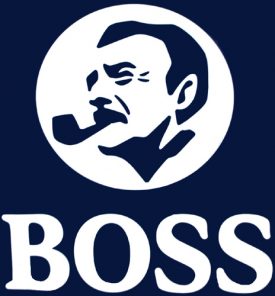A few weeks ago I wrote about corporations and politics, using the NRA boycott as an example of how the left is learning to make peace with using economic muscle to get what it wants. They’ve also done a good job of framing it as markets at work. I would argue that maybe this is one of those cases that capitalism and markets diverge, and that this may be more of the former than the later. At the least, I think there was something else going on:
A lot of people made it seem like capitalism and markets, and while there was some of that there was something else going on: The people who made those decisions were sympathetic. Delta didn’t run thorough cost-benefit analyses. They didn’t do market research on which paths would have helped and hurt them. They made their decisions quickly. Corporations are made of people, and people make the decisions. Delta and FedEx had pretty similar sets of incentives. One made one decision, one made the other. Increasingly, though, the people in important corporate positions are sympathetic to the social causes of the left. As they have burned all of the bridges from their island to the mainland, this is going to be an increasing problem for the right. But for the left, it’s a windfall.
The pushback I get from this is that corporations make decisions based on money and therefore if they made this choice, it was about money. What that misses is situation likes this, where you’re dealing with a lot of ambiguity. You don’t have time for market-testing. It’s hard to even say what appropriate market testing would even look like. What’s the A-B test here? So in the absence of a clear indication of what to do, decisionmakers are going to follow their instincts. Their instincts are colored by their worldview and their social environments.
In other words, I think the decisionmaking looked like this:
You have to work really, really hard to try to fit the CEO complaining about getting the stinkeye into the “markets at work” paradigm. Further, this is where cultural influence matters a great deal. Whose criticism is Harding worried about? What do those people think? Assuming no successful boycott, one of them is probably worth ten of the kinds of people he doesn’t otherwise associate with.Peter Harding doesn’t look like the bad guy. He doesn’t resemble the villain who is responsible for putting mountains of sugar into fizzy drinks and turning the country’s youngsters into a generation of fatties.
But that’s how Harding, who runs Lucozade Ribena Suntory – the UK soft drinks business owned by Japan’s drinks giant, Suntory – was made to feel by everybody from Jamie Oliver to health campaigners and the media.
“I was being stared at, at the school gates by other parents. Jamie Oliver was beating me up, so were other celebrities, NGOs and the media. They were demonising me as though sugar were the new tobacco. The criticism was not nice for anyone, including our employees.”
When conservatives retreated to Fox News and away from the media (entertainment and news) and act as renegades against academia, this is what they gave up. Going forward, the people who make the decisions are likely not to be in their corner, from a social or instinct standpoint. That matters a lot! When there were clear business considerations, a number of companies actually didn’t cut ties with the NRA. Google, Roku, Apple, and Amazon all stopped short of letting it interfere with their actual business plans, and Dick’s Sporting Goods appears to be the only one willing to pay a price. It was only when a decision favored dropping the NRA or it was ambiguous. And given how quickly everything moved, it was usually ambiguous.
In this case I strongly suspect that this was not a good business decision. To argue that it is requires more heavy lifting than can be done. To me, whether this was the right decision or the wrong one depends on how it tastes, but it was clearly a decision based on the moral intuitions and social circumstances of the decision-makers. And in that, it wasn’t alone.
About the Author
please enter your email address on this page.

